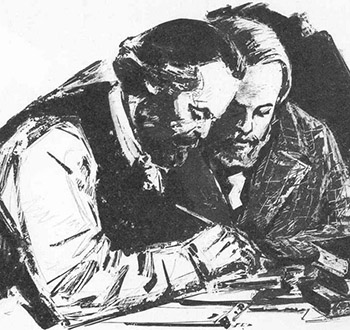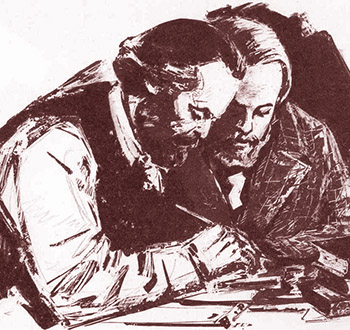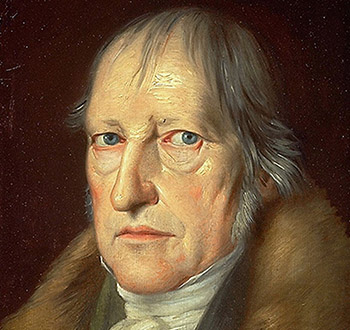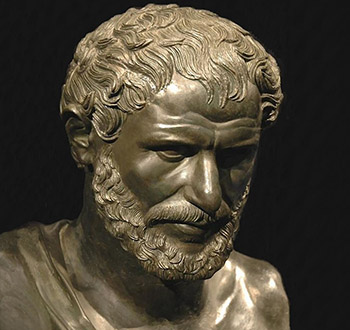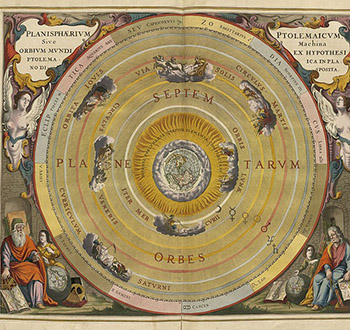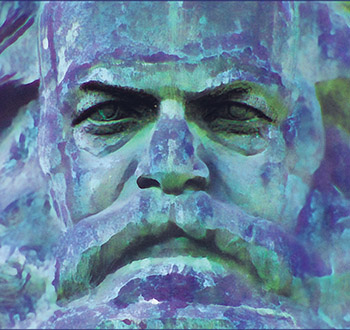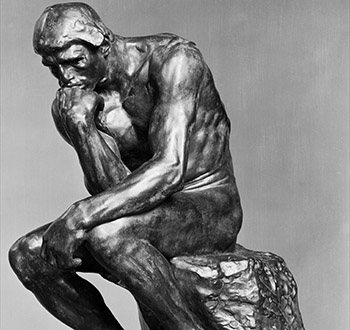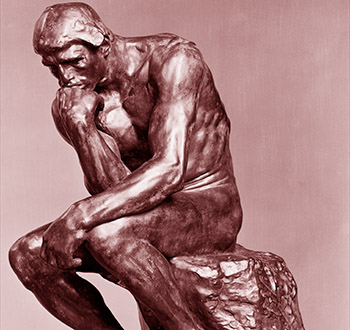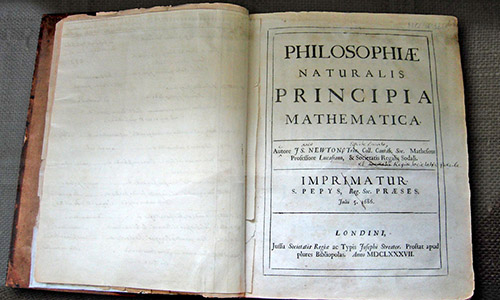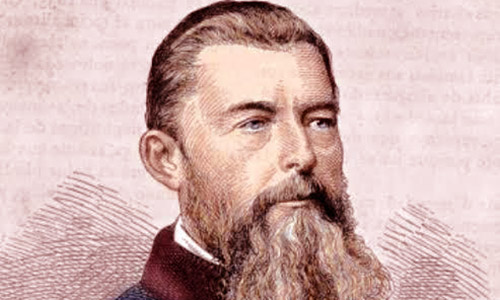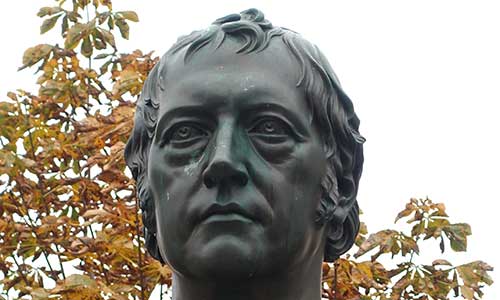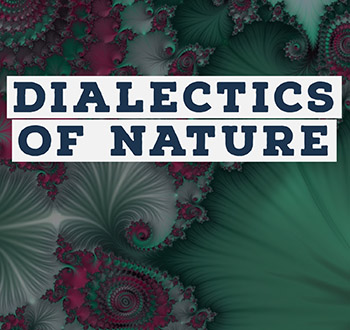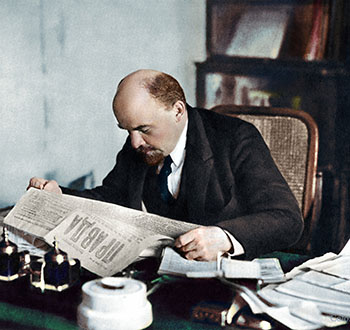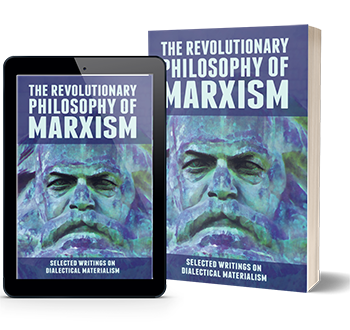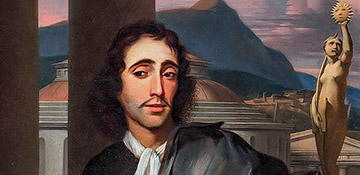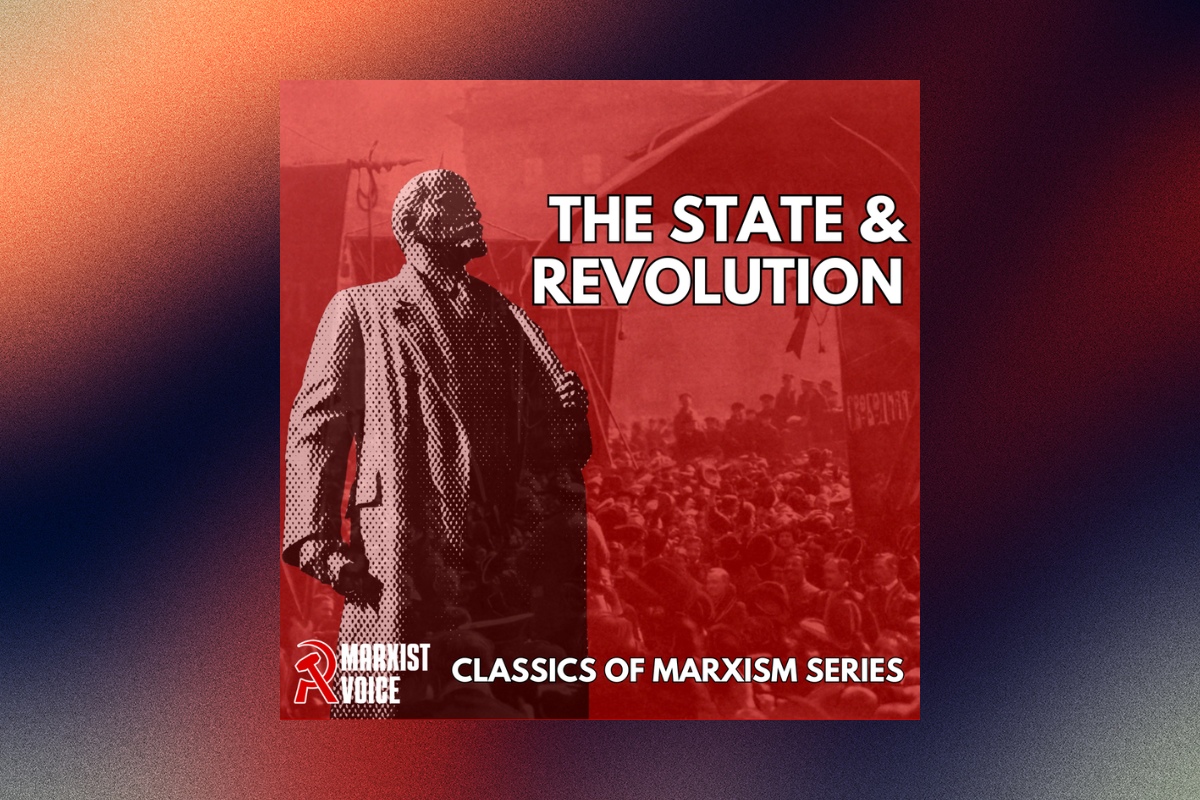Dialectical materialism is the philosophy or methodology of Marxism.
Every political movement, party, or even statement of any kind bases itself, consciously or unconsciously, on some sort of philosophy or world outlook. Marxism is concerned with effecting a radical change in society, and therefore requires an exceptionally clear, thoroughgoing, and systemic set of philosophical principles.
The ideas of dialectical materialism, based on the best traditions of philosophical thought, are not a fixed dogma but a system of tools and general principles for analysing the world materialistically and scientifically.
The basic tenets of dialectical materialism are: that everything that exists is material and is derived from matter; that matter is in a process and constant change; and that all matter is interconnected and interdependent.
Learn the basics
Marxist classics
& books
A reading list with three different levels created by Alan Woods to help to orient those readers who wish to obtain a knowledge of Marxist philosophy.
An introduction to Marxist philosophy by Rob Sewell, alongside a collection of extracts on dialectics from Engels, Lenin and Trotsky.
As opposed to pragmatism and empiricism, Trotsky defends and explains dialectical materialism as a richer, more comprehensive view of society and life in general.
Originally published in the 1970s, this article is a good first introduction to the ideas developed by Marx and Engels.
In-depth analysis
Marxist classics
& books
Ben Curry explains the development of scientific thought throughout history from a Marxist perspective, and explains how it relates to materialist philosophy.
This introduction by Alan Woods to this new selection of writings on dialectical materialism comes well recommended to grasp the philosophy of Marxism.
Chapters on: Do we Need Philosophy?, The First Dialecticians, Aristotle and the End of Classical Greek Philosophy, The Renaissance, Descartes, Spinoza and Leibniz, and Philosophy in the 20th Century.
The attitude of many people regarding philosophy is indifference or contempt. When it comes to modern philosophy this is well-deserved. Yet on closer inspection the contempt for philosophy is misplaced.
The problems of knowledge and free will have occupied a central place in philosophy for centuries. How should Marxists address this?
A towering genius with an encyclopaedic mind, Hegel revolutionised every field that he dedicated himself to. The impact of Hegel’s ideas cannot be underestimated, and as Marxists we owe him a tremendous debt.
Marxist classics & books
Marxist classics
& books
The rapid rise of the theory of Chaos and Complexity was one of the most significant developments in science at the beginning of the new millennium. Many of the ideas expressed by this new trend are strikingly similar to the theories of dialectical materialism worked out by Marx and Engels over 150 years ago.
“A short, coherent account of our relation to the Hegelian philosophy, of how we proceeded, as well as of how we separated, from it, appeared to me to be required more and more.”
A classic of Marxism, Anti-Dühring was highly recommended by Lenin as a ‘text book’ of scientific socialism. It remains a classic exposition of the laws of dialectical materialism, the philosophy of Marxism.
Ever since Engels' arrival in London in 1870, he was keen to write a comprehensive work on science and dialectical materialism. The notes and studies for such a work make up the present volume – an essential read for all those who want to develop a deeper understanding of Marxist philosophy.
This work played a decisive part in combating the Machist revision of Marxism. It enabled the philosophical ideas of Marxism to spread widely among the mass of party members and helped the party activists and progressive workers to master dialectical and historical materialism.
This book on Marxist philosophy aims to arm the new generation of revolutionary socialists with the ideas of dialectical materialism. A selection of writings by Marx, Engels, Lenin, Trotsky, Plekhanov, and Luxemburg, and Alan Woods. Available from Wellred (also as an ebook).
Audio & Video
Marxist classics
& books
Alan Woods gives an overview of philosophical thought from the early Greeks, through the British empiricists and the German romantics, to the revolutionary ideas of Marx, Engels, and dialectical materialism.
Daniel Morley introduces a discussion on Philosophy and Dialectics at an IMT Winter School, covering everything from the nature of idealism and empiricism to the limitations of formal logic.
Alan Woods explains why it is vital for revolutionaries to have a philosophy; why we need to examine nature and society from a scientific perspective; and how the ideas of dialectics help us to understand the processes of change going on around us at all levels.
Marxism basis itself on a materialist outlook, which understands the material world as being an objective reality, consisting of matter in motion, governed by dynamics that are knowable and discoverable. Idealism, in its different guises, asserts that ideas and thoughts are primary; the world around us is only an imperfect reflection of these ideas.
Hegel's ideas provided a profound leap from the mechanical and rigid outlook of those who preceded him. His dialectics were the basis for the revolutionary philosophy of Marxism – dialectical materialism. But in order to make sense of Hegel, Marx and Engels had to turn him upside down, taking his philosophy from the realm of idealism to that of materialism.
Postmodernism denies the very idea of historical progress. Scientific truth is also sidelined in favour of a ‘subjective’ emphasis on language, experience and identity. Where do these ideas come from, and what does Marxism have to say about them?
The ABCs of Marxist philosophy















